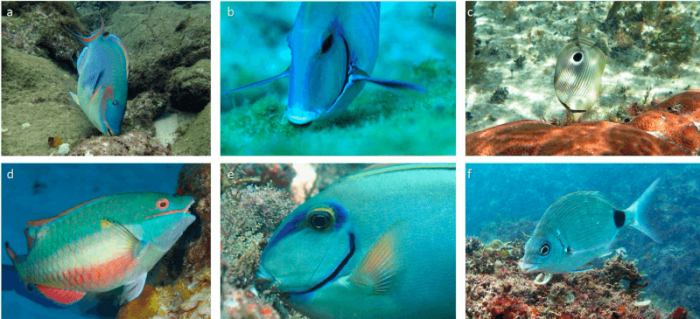
THE QUESTION
When we think about a tropical site, what commonly comes in mind is heat, rainforests, beaches, and colorful reefs. The tropics are the warmer regions of the planet, and they harbor the highest species diversity on Earth, particularly in forests and reefs. Despite this widely-accepted biodiversity pattern, there is a heated debate on the idea that interactions among species are more intense in the tropics, mainly due to difficulties in quantifying ecological interactions across hemispheres, including tropical and extratropical areas.
WHY DOES IT MATTER?
Ecological Interactions, such as predation, herbivory, competition, and parasitism, are critical to maintaining biodiversity, ecological processes, and the benefits provided to us by natural ecosystems. Human activities have depleted species and reduced abundances across the globe, causing the loss of their ecological interactions and roles in the ecosystem functioning. By understanding the current scenario of species interactions, we will be able to predict how human impacts will affect ecological interactions that may scale-up to the ecosystem.
WHAT DID WE DO AND HOW?
We assessed reef fish feeding on organisms that live on the seafloor (e.g. predation and herbivory) in 15 locations distributed from North Carolina-USA to Santa Catarina-Brazil. The studied area comprises 61° of latitude, 5 countries, and around 4,700 miles in a straight line from the northern to the southernmost area.
Over 3 years of fieldwork (2011-2014), we visited more than 60 reefs where we videoed several 2m2 reef areas for 10 minutes. By analyzing these videos in the lab, we counted the number of feeding interactions of every fish within the area and identified the fish species and feeding group (e.g. herbivore). In addition to this continental field effort, it took us an additional 3 years to go through over 1,000 videos (equivalent to 7 full days underwater!) and analyze the data.
WHAT DID WE FIND OUT?
Yes, the ecological interactions we studied are more intense in the tropics! We found that fish feeding interactions could be up to 20-fold more intense in the tropics in comparison to sites out of the tropics. This pattern was due to more herbivory occurring in warmer areas, decreasing towards colder areas out of the tropics, where omnivores dominated the interactions in both hemispheres.

Images courtesy Sergio Floeter
AGAIN, WHY DOES IT MATTER, AND WHAT IS NEXT?
Global changes affect ecological interactions in several ways. For example, some tropical herbivorous fish are extending their range of occurrence to areas out of the tropics and we have started to observe shifts in ecological interactions as they can be intensified, extinct or even new interactions may arise. Such changes are likely to affect biodiversity, ecosystem functioning, and the benefits provided to humans by these natural ecosystems. Based on the information provided by this paper, we are now able to predict which changes are more likely to occur and where, which may help us to prepare, adapt, and respond to this future scenario in an informed manner.
These findings are described in the article entitled Trophic interactions across 61 degrees of latitude in the Western Atlantic, recently published in the journal Global Ecology and Biogeography. This work was conducted by Guilherme O. Longo from Universidade Federal do Rio Grande do Norte and the Georgia Institute of Technology, Mark E. Hay from the Georgia Institute of Technology, Carlos E. L. Ferreira from the Universidade Federal Fluminense, and Sergio R. Floeter from the Universidade Federal de Santa Catarina.
Full paper:
- Longo GO, Hay ME, Ferreira CEL, Floeter, SR. 2018. Trophic interactions across 61 degrees of latitude in the Western Atlantic. Global Ecology and Biogeography. DOI: 10.1111/geb.12806









